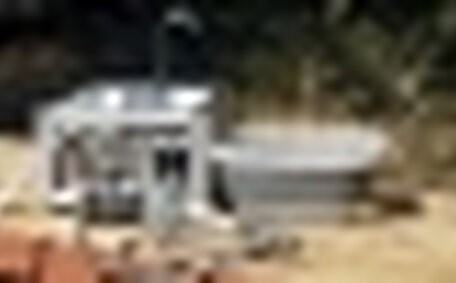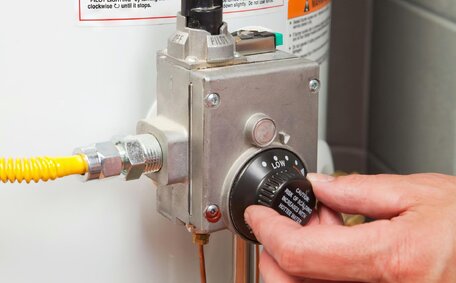Understanding Common Causes of Blocked Shower Drains
A clogged shower drain is frequently due to an accumulation of hair, soap scum, dirt, and other residues over time. As hair and soap residue collect in the drain, it sticks to the pipe walls and hardens, eventually forming a plug that blocks water flowing down your drain.
Installing drain catchers effectively prevents hair-related blockages by trapping loose strands and soap residue before they cause clogs.
Long hair is particularly troublesome as it can tangle and expand within the drain, leading to blockages.
Soap scum buildup within your bathroom is another major factor leading to drain blockages. This sticky scum, leading to blockages, accumulates over many showers and eventually settles within your pipes. Once in your main drain pipes, it solidifies into a hefty coating that ensnares both hair and refuse.
Soap and shampoo residue often adhere to the shower floor and walls as you rinse off.
Other common debris that contribute to clogged drains include dead skin cells that sleugh off your body, bits of dirt and sand from feet, and mineral deposits from hard water. All these elements can stick to sticky soap scum and tangled hair already lining the pipes, worsening the accumulation until it forms an obstructive plug.
Recognising that dense hair and soap scum are major blockage culprits is crucial. Proactive prevention, like fitting a drain cover and weekly cleaning, along with avoiding grease disposal, can prevent blockages.
Assessing Blockages: When to DIY vs Call a Professional
Determining the severity of a blocked drain is key to deciding between DIY solutions or seeking professional plumbing services. There are a few key signs that indicate it’s advisable to seek professional help right away:
- If water is accumulating or standing without draining, this clearly indicates a substantial obstruction.
- You have attempted various DIY methods like plunging, drain snakes, and chemical drain cleaners with no success.
- The clog is persistent and comes back shortly after you think you’ve cleared it.
- You’re concerned that invasive factors, such as tree roots or damage to your main sewer line, may be the culprits behind the blockage.
Through this article, we explain what to do when it’s sensible to call professional plumbing services for assistance. Professionals do a great job with advanced tools and know-how to clear stubborn drain clogs and tackle any underlying problems. They can detect burst pipe problems by inspecting the pipes with cameras.
I know my shower clog solutions, but understanding the extent of the blockage is a key to avoiding plumbing damage. Get in touch with our Gold Coast team if you’re wondering how to unclog that stubborn shower drain.
Trying Quick Home Fixes First
Before calling a professional plumber, there are some quick methods on how to unblock shower blockages you can attempt at home.
Boiling Water
Pouring hot water down the drain may dissolve soap scum and hair, aiding in clog removal.
Boil a full kettle of water and carefully pour it down the drain to avoid burns and dislodge the clog.
For minor clogs, regularly pouring hot water can prevent blockages. If there’s visible debris, consider removing it with a tool like a straightened coat hanger before pouring the water, which should be slightly cooled for plastic pipes.
Baking Soda and Vinegar
Creating a chemical reaction can break up obstructions. The foaming fizz from the vinegar baking soda reaction releases gases to help dislodge the clog. Allow the mixture of 1 cup baking soda to settle for 5-10 minutes, then follow with a hot water rinse.
To unblock the shower drain, pour 1⁄2 cup baking soda followed by 1 cup of heated white vinegar down the drain.
You can try adjusting the method by pouring the vinegar first, letting it sit, then adding the baking soda. The reaction that occurs pushes debris further down the pipes to clear the blockage near the drain.
Manual Removal
To tackle drains clogged with hair and scraps, slip on rubber gloves or use long-handled tongs for gentle debris extraction. Aim to get rid of as much debris as possible before resorting to other liquid-based treatments. Just take care not to push any debris further down into the pipe.
If these common strategies fail to unblock your shower drain, the situation necessitates professional intervention. Don’t hesitate to get in touch with us, our team; we have robust equipment needed to clear the most stubborn clogs and restore your shower drainage.
Using a Plunger
A plunger is an effective tool for dislodging minor blockages in your shower drain. With the clogged condition at hand, you’ll find that achieving a tight seal around the drain opening is crucial for efficacious plunging.
Start by placing the plunger directly over the drain and fill the sink or tub with enough water to cover the rubber end of the plunger.
Press the plunger straight down to seal the drain opening, then pump vigorously 10-15 times to generate enough pressure to dislodge the blockage.
Check if water is draining normally after plunging to fix clogged shower effectively. Should your blocked drain persist, consider repeating the plunging steps multiple times. Make sure you pull the plunger directly up after plunging to break the seal and allow trapped water through to drain off.
Plunging is most effective for minor clogs caused by materials like hair or soap scum near the drain opening. For deeper and more stubborn blockages, a drain snake or professional cleaning may be necessary.
Knowing When and How to Use Chemical Drain Cleaners
Drains can sometimes benefit from the dissolving action found in alkaline formulas. Products often contain harsh ingredients like sulfuric acid, sodium hydroxide, bleach, and ammonia.
When tackling a clogged drain with chemical drain openers, be very cautious and always follow directions carefully.
When using chemical drain cleaners, always wear protective gloves and goggles, and avoid mixing different products to prevent the formation of toxic gases.
Chemical drain cleaners might offer quick results, but their corrosive ingredients can damage pipes with repeated use, leading to potential leaks or collapses. It’s important to use these products sparingly.
One can use environmentally friendly enzyme-based drain cleaners as safer natural alternatives. Enzyme cleaners break down organic matter through bacteria cultures. Though they may require overnight treatment, enzymes are gentle on pipe materials.
Carefully weigh the pros and cons before attempting chemical drain cleaners on your own. For professional drain cleaning using high-powered hydro jetting that won’t damage pipes, contact our emergency plumbing services.
Trying a Drain Snake to Dislodge Deep Clogs
The flexible cable of a drain snake can manually displace deep blockages within your drains, offering a mechanical alternative to liquid chemical cleaners.
For effective use of a drain snake on a blocked shower drain, follow the steps below:
- Insert the drain snake cable into drain and gently push it further down the pipe.
- Crank the handle on the drain snake to extend the cable into the pipe towards the clog location. Go slowly to avoid scratching your pipes.
- Once resistance is met, that likely indicates the clog came out to meet the drain snake. Rotate and twist the cable to hook onto other debris and break it up.
- Retract the cable after a few minutes to pull out debris. Run hot water to flush loosened material down the pipes.
- Repeat the process several times until the drain is flowing freely. It may take multiple attempts to fully clear a severe clog.
A drain snake can be an effective DIY tool to eradicate deep clogs in your shower plumbing. Given the delicate nature of this task, ensuring the work done doesn’t harm the pipes is crucial. Seek professional assistance which gave me the solution when I was unable to fully unclog the shower drain.
Calling a Professional Plumber
Our team is equipped with advanced tools and expertise to unclog shower drain blockages and address hidden issues.
Consider professional drain cleaning services when encountering these indicators of severe blockages:
- Standing water in your shower that fails to drain
Our licensed plumbers at Riverwood Plumbing can easily be contacted 24/7 to specifically address clogged shower drains. We would use cutting-edge hydro jetting machinery to annihilate years of residue accumulation in your drains. Our advanced hydro jetting techniques are safe and can clear severe clogs effectively without resorting to harsh chemicals or risking pipe damage.
For prompt and reliable emergency drain cleaning services in the Riverwood area of Sydney, call Riverwood Plumbing at 1300 349 338 or email [email protected] to schedule an appointment.
Standing water in your shower that fails to drainA drain clog you cant reach with a snake otrands from washing down the pipe. It’s an easy way to stop hair from accumulating into clogs. Clean the Drain Regularly
Make it part of your weekly cleaning routine to pour hot water and a small amount of liquid drain cleaner down the shower drain. This helps dissoon.
Avoid Harsh Chemicals
The corrosive ingredients can damage pipes over time. Opt for safer enzyme-based or natural drain cleaners when possible.
Regular drain maintenance is key to ensuring smooth water flow. Contact Riverwood Plumbing if you need any assistance inspecting or unclogging your home’s pipes.
Simple maintenance steps can prevent future clogs in your shower drain:
Use a Drain Cover
A drain cover or hair catcher is an essential item to prevent hair from washing down and blocking the pipe.






